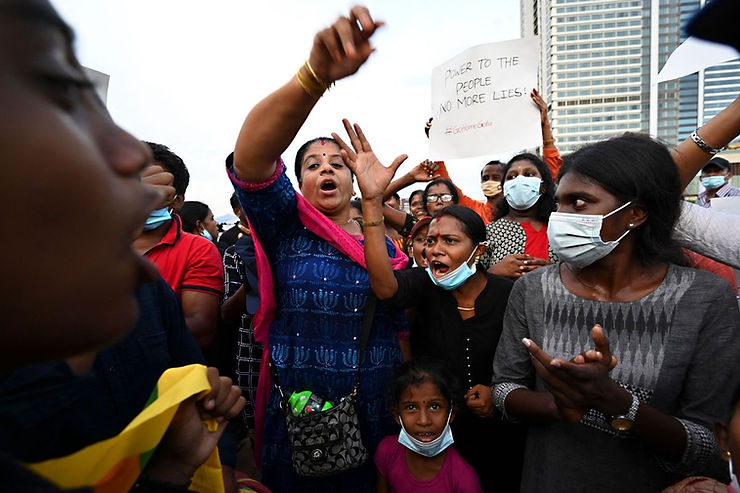By: Rachel Liao
This month of July, in Colombo, Sri Lanka, Sri Lankan President Gotabaya Rajapaksa was chased from office by protestors.
His departure ends a family dynasty that has dominated Sri Lanka’s politics for the past two decades.
His government became the first to fall so dramatically from the double punch of the pandemic, and economic fallout from the Ukraine War. This “impeachment” led his successor, Ranil Wickremesinghe, to handle these issues.
The new president did not go up to the podium welcomed by a successful region. He was a six-time former prime minister. He now handles a bankrupt nation, collapsed economy, and owes $51 billion foreign debt to other regions.
The environment was also fatal, food inflation, which is running more than 50%, has caused poverty and the country’s currency has depreciated.
“You have a combination of the aftereffects of the pandemic, prices of commodities shooting up because of the war in Ukraine, climate issues, and particularly, underlying political instability and bad management,” Dane Chamorro, a partner at the consultancy Control Risks, said.
He included that other countries ranging from Pakistan to Egypt to Kazakhstan were facing the same difficulties as they were, but some governments navigated through the course better than Sri Lanka.
Wickremesinghe knew he had to do something about this.
He nationally declared a state of emergency and imposed a curfew in the western province while he tried to handle the situation.
This led to another group of protestors who wanted him to resign from office, possibly leaving him to go without seeing out a full term in office.
He also included that the government could print money to pay employees’ salaries, but warned that this could likely boost inflation and lead to price hikes. The new president stated that state-owned Sri Kankan Airlines could be privatized.
“It just shows how much impact bad management and outright corruption can really derail what would otherwise be a wealthy country,” Chamorro added.
Sources cited:











